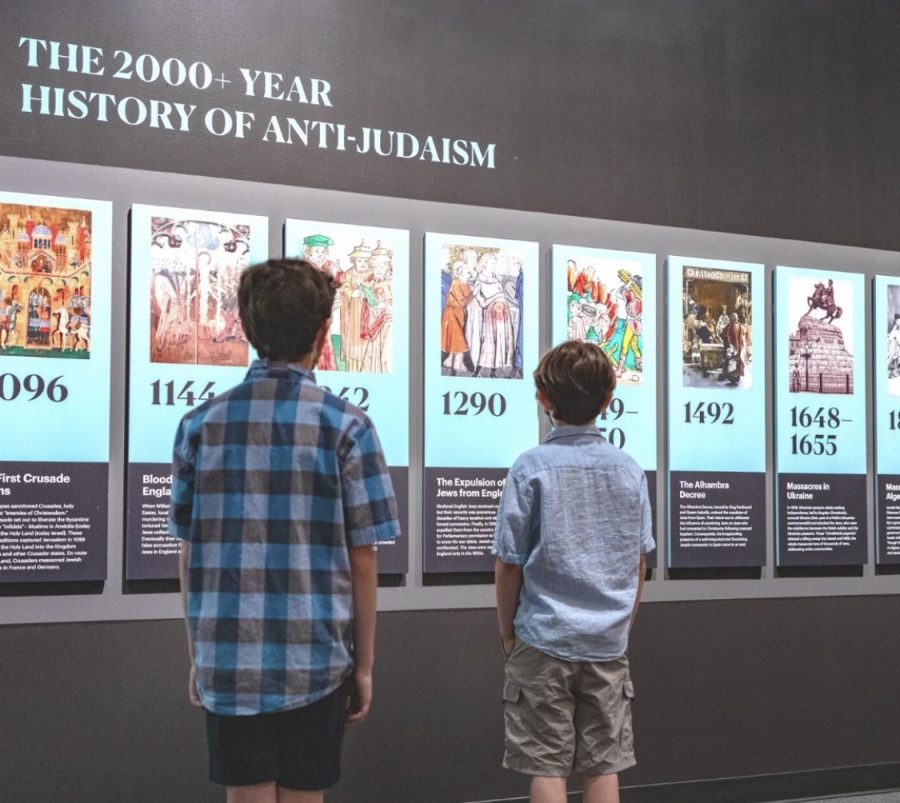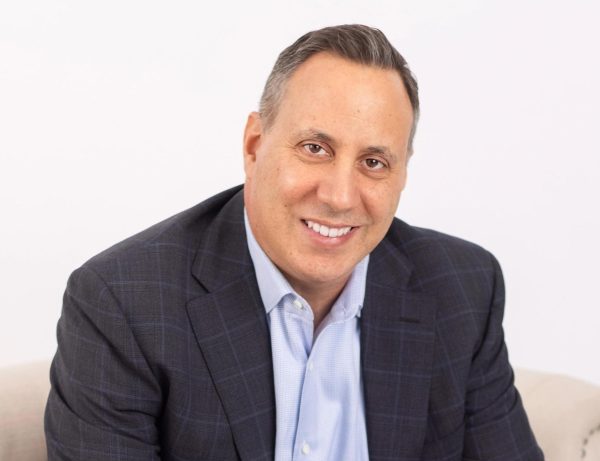Fordham Hosts Lecture on Holocaust Education in the 21st Century
On Jan. 26, 2023, McNally Amphitheatre was packed with an audience filling almost every seat to witness a panel being held in regards to the Holocaust. With recent research showing that there is a rise in Holocaust denial and disinformation, Fordham University partnered with the Under-Told Stories Project and the Museum of Jewish Heritage in New York to invite various highly influential speakers to discuss how educators, the media, religious leaders and influential figures of all forms can fight Holocaust denial in modern times.
The panel was moderated by Fred de Sam Lazaro and Peter Osnos. Lazaro, who is the director of the Under-Told Stories Project at the University of St. Thomas in Minnesota, worked with Peter Osnos, an American journalist who founded the PublicAffairs Books and Chicago News Operative to lead a discussion featuring a variety of professors and highly influential special guests speakers.
Amongst the panelists was Judy Woodruff, a former Senior Correspondent and live reporter for PBS Newshour who retired in 2022. Next to her sat Magda Teter, a historian and professor of Judaic Studies at Fordham Lincoln Center. From the University of Virginia came professors of Jewish history, James Loeffler and Jay Berkowitz. Lastly, there was Linda Krinstler, a contributing writer for the Economist and author of the book, “Come to This Court and Cry: How the Holocaust Ends.” Special guests included Eva Paddock, an educator and Holocaust survivor who was rescued from Czechoslovakia.
Modern Holocaust education “must be relevant to today’s generation,” said Paddock. “We’re the last authentic witnesses. The deniers cannot discount the label that was around my neck and our visas. And they cannot discount the document that I had that said we are confiscating Jewish property.”
The panel then discussed why prejudice still exists in modern times during an era where Holocaust education is readily accessible. For instance, when a white nationalist riot turned violent in Charlottesville in 2017, the original controversy mainly had to do with whether or not a Confederate statue should be removed. Despite this, the rioters were yelling antisemitic slogans and utilizing neo-Nazi flags and symbols. This was a large shock to many and brought further attention to the rise of antisemitism.
“I think that the first time in recent history that antisemitism somehow exploded was on that night in Charlottesville,” said Osnos. Osnosthen asked Loeffler, “Can you talk a little bit about that sudden moment when antisemitism, which was in remission, suddenly seemed to get so violent?”
“Haters find hate,” said Loeffler. “One of the people who was behind that terrible weekend of violence was Richard Spencer, a white supremacist who actually went to the University of Virginia and he studied Nazi and German history. One of the reasons there were torches there was because he said ‘oh, I like what they did in Germany…’ He was borrowing from a playbook not just feeling a kingship from these horrible moments in history… It was a very difficult moment for all of us, not just in Charlottesville but also in America to make sense of this.”
Another major problem that comes with Holocaust denial is disinformation. For this reason, Lazaro asked former reporter Judy Woodruff, “How difficult is it to be a classic journalist in this day in age when you have so much coming at you from people who are powerful, and how do you deal with, frankly, lies?”
“A reporter is someone who goes and gathers the facts and then reports them back. You listen to all sides and you try to be fair and you don’t take sides. That’s what it’s all about,” said Woodruff.
“But of course, we are in a fraught and frightening political period right now… Our country is as divided as it’s ever been… People now don’t just disagree on the issue, they disagree on fundamental questions of our culture, of our identity, who we are, what we fundamentally believe, whether it’s our religious faith, our racial background, our ethnic background, all of these things have now come into the mix,” said Woodruff. “[Journalists must] cover the news, be fair and call something that is not truth.”
Overall, the panelists emphasized the idea that history cannot be forgotten, fabricated or devalued. Discussions like this not only honor the victims of such events, but also continue to bring awareness to what the Holocaust was: the destruction and murder of the lives of millions of innocent people. Panels such as this one emphasize the importance of the analysis of history so that future generations know not to repeat the mistakes of the past.











































































































































































































VP Smith FCRH '62 • Feb 2, 2023 at 3:48 pm
A 1962 graduate of Fordham College of Pharmacy, Michael Bornstein, is himself a survivor of he Holocaust. He published a book about his experience: “Survivors Club: The True Story of a Very Young Prisoner of Auschwitz.”